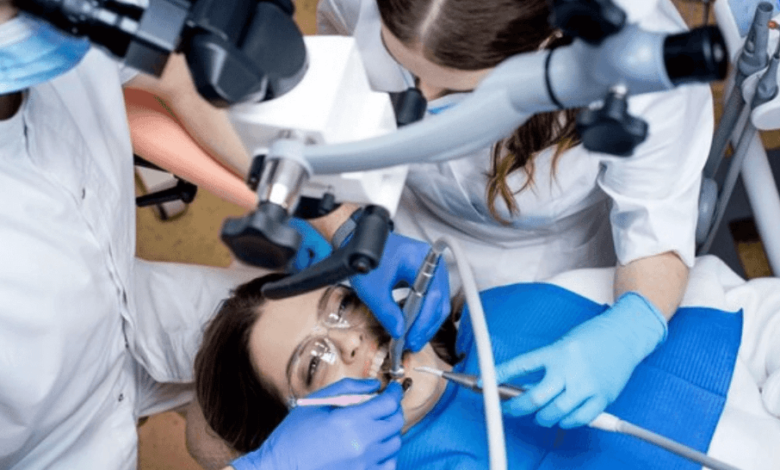What’s the Difference Between a General Dentist and a Specialist?

When it comes to looking after your oral health, it’s helpful to understand the roles of different dental professionals. You’ve probably heard the terms “general dentist” and “specialist,” but what exactly do they mean? And when should you see one over the other? This guide explains the key differences to help you make informed choices about your dental care.
What Does a General Dentist Do?
A general dentist is your primary dental care provider. They focus on preventing, diagnosing, and treating a wide range of oral health issues. Services offered by general dentists typically include:
- Routine dental check-ups
- Professional teeth cleaning
- Fillings for cavities
- X-rays to monitor oral health
- Simple tooth extractions
- Preventive treatments like fluoride and sealants
Most people visit a general dentist regularly for ongoing care. They can handle the majority of common dental concerns and help you maintain healthy teeth and gums.
See also: What Dental Services Are Available in Hornsby?
What is a Dental Specialist?
A dental specialist is a dentist who has completed additional years of training in a specific area of dentistry. They focus on diagnosing and treating more complex dental issues that go beyond the scope of general dentistry. Common types of dental specialists include:
- Orthodontist – focuses on straightening teeth and correcting bite issues with braces or aligners
- Periodontist – treats gum disease and issues affecting the structures that support teeth
- Endodontist – specialises in root canal treatment and problems inside the tooth
- Prosthodontist – restores and replaces missing teeth with crowns, bridges, or dentures
- Oral and Maxillofacial Surgeon – performs surgical procedures such as wisdom tooth removal or jaw surgery
- Paediatric Dentist – specialises in dental care for infants, children, and teens
Key Differences Between General Dentists and Specialists
The main difference lies in their level of training and the complexity of treatments they provide. General dentists offer a broad range of care, while specialists focus on specific areas. Here are some key distinctions:
- Training: Specialists undergo additional education and clinical training after dental school
- Scope of services: General dentists handle preventive and routine care; specialists manage more complex or advanced cases
- Referrals: You may be referred to a specialist if your dental needs require specialised treatment
- Treatment complexity: Specialists are equipped to handle conditions requiring expert procedures or techniques
When Do You Need a Specialist Instead of a General Dentist?
In many cases, your general dentist can manage your dental needs. However, they may recommend a specialist if you have:
- Impacted or complex wisdom teeth
- Severe gum disease requiring surgical treatment
- A need for orthodontic correction
- Root canal complications or retreatment
- Significant jaw or facial trauma
- Missing teeth requiring implants or advanced prosthetics
A general dentist will guide you if specialist care is necessary and help coordinate your treatment.
How General Dentists and Specialists Work Together
General dentists and specialists work closely to ensure you receive comprehensive care tailored to your needs. Your general dentist acts as the first point of contact, monitoring your oral health and referring you to a specialist when advanced treatment is required. By collaborating, they ensure continuity of care throughout your dental journey.
If you’re looking for general dentistry services Adelaide, your local dental practice can provide a range of care while also helping you access specialist treatment if needed.
Benefits of Starting with a General Dentist
Visiting a general dentist regularly offers several advantages:
- Preventive focus: Detect problems early before they become serious
- Convenience: One place for most of your family’s dental care needs
- Cost-effectiveness: Routine treatments are typically less costly than specialist procedures
A general dentist is also well-positioned to recommend when (or if) you need specialist care.
How to Know If You Need a Specialist
Your general dentist is the best person to advise whether you need a specialist. Signs that might lead to a referral include persistent tooth pain, gum problems that don’t improve, difficulty chewing, or concerns about tooth alignment. Trust their guidance—they’ll ensure you get the right care at the right time.
Takeaways
Understanding the difference between a general dentist and a specialist can help you make confident decisions about your dental health. While general dentists provide essential care for most dental needs, specialists offer expertise for more complex issues. Regular visits to your general dentist will keep your smile healthy and ensure any necessary specialist care is identified early.

